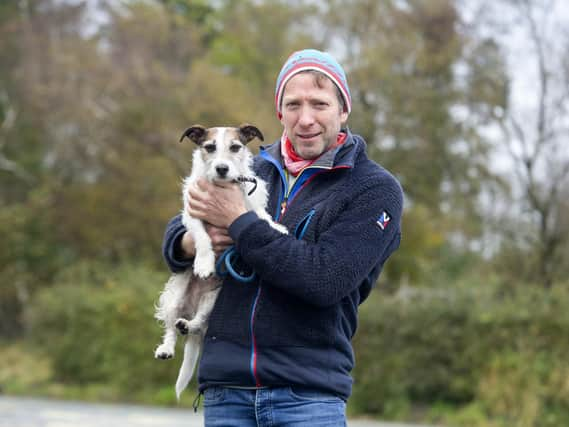The Yorkshire Vet, Julian Norton meets a patient with a rather smelly habit


However, this habit is nowhere near as offensive as that of Monty, the fluffy chocolate cocker spaniel, who was just three months old when he came rushing in for his second vaccination.
A more perfect picture of canine cuteness could not have been imagined and, as I fussed him from the opposite side of my perennial Covid-deterring mask, Monty licked my face with vigour.
Advertisement
Hide AdAdvertisement
Hide Ad“We call him Monty after Monty Don because he loves being out in the garden,” explained Monty’s owner, as I reached for the vials of vaccine.
Second vaccination appointments are the best. The main clinical examination has already been done, so it is a chance to talk about the development of a young dog whose life, health and accidents I might be following for the next decade. But today, the answers to the usual questions about the pup’s progress revealed something rather nasty.
“He’s doing well, growing up nicely and getting bigger and stronger, but he has a terrible habit of eating his own poo. I don’t know how to stop it!” reported his affectionate, but conflicted, owner.
The technical name for this behaviour is coprophagia. It is as serious as its name suggests and often hard to fix. Solving the problem revolves around breaking the bad habit. Some advice suggests adding garlic/chillies/pineapple juice to the diet in order to make the faeces taste horrible.
Advertisement
Hide AdAdvertisement
Hide AdI’ve never found it works and tactics like using a muzzle for short periods pre and post-defaecation and fastidiously removing extruded excrement before there is any chance for a faecal feast are often most effective.
Monty’s mum described the challenge she was facing.
“Monty makes it hard for us, because he rushes into the garden and heads into one corner. He passes some poo, then I go and collect it in a bag. But while I’m picking it up, he rushes to another corner, passes more poo and then eats it before I have chance to get to him. I don’t know what to do!”
It was a desperate plea for help in the sorry tale of Monty and his horrible habit. I could picture the scene and it brought back the ugly memory of a client who described a pup who would not only eat its own faeces, but would also follow its canine friend around on a walk, waiting for an extra snack, which was even more gross.
We talked though the problem and possible ways to deal with it, and I sympathised, concurring that my own dog had developed her own smelly habits.
Advertisement
Hide AdAdvertisement
Hide AdI urged a determined approach – maybe a circuit breaker lockdown of this antisocial behaviour might work? This is one occasion where it is a shame that a simple conversation isn’t one of the options, “Monty, this seems strange to me,” might be the approach. “If you see faeces when you’re out or in the garden, just walk, on, by,” was surely great advice.
I drew up the vaccine, which I needed to inject to keep Monty safe from infectious diseases, fussed his fluffy head and tried not to think about what had probably passed his lips earlier that morning. Monty continued wagging his tail, totally unaware of the needle.
As if to thank me for being gentle, he turned around and vigorously licked my face. For once, I felt very happy to be wearing a face covering!
Channel 5’s The Yorkshire Vet continues with its twelfth series on Tuesdays at 8pm.